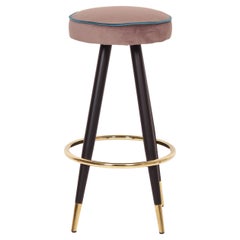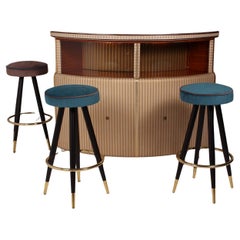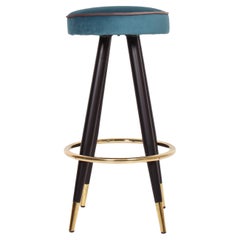Pedestal Counter Stool
2010s Italian Mid-Century Modern Pedestals and Columns
Brass, Iron
2010s Italian Mid-Century Modern Pedestals and Columns
Brass, Iron
2010s Italian Mid-Century Modern Pedestals and Columns
Brass, Iron
2010s Italian Mid-Century Modern Pedestals and Columns
Brass, Iron
Early 2000s Italian Mid-Century Modern Pedestals and Columns
Brass, Iron
People Also Browsed
Vintage 1960s Italian Mid-Century Modern Porcelain
Porcelain
2010s Dutch Modern Side Tables
Marble
2010s Italian Renaissance Wall Mirrors
Glass
2010s Swedish Scandinavian Modern Lounge Chairs
Sheepskin, Oak
2010s Australian Hollywood Regency Pillows and Throws
Fur
Vintage 1960s German Mid-Century Modern Chandeliers and Pendants
Brass
Mid-20th Century French Louis XVI Night Stands
Wood
21st Century and Contemporary Mexican Mid-Century Modern Table Lamps
Wood, Fabric, Linen, Fiberglass
2010s Belgian Hollywood Regency Pillows and Throws
Cotton, Linen, Velvet, Down
21st Century and Contemporary Italian Mid-Century Modern Chandeliers and...
Brass
21st Century and Contemporary Swedish Mid-Century Modern Table Lamps
Textile
Antique 1890s American Edwardian Sofas
Mohair
Antique Late 19th Century English Victorian Game Tables
Wood
20th Century French Art Deco Dining Room Chairs
Wicker, Rattan, Resin
Mid-20th Century French French Provincial Beds and Bed Frames
Wicker
Vintage 1980s Thai Japonisme Screens and Room Dividers
Gold Leaf
A Close Look at Mid-century Modern Furniture
Organically shaped, clean-lined and elegantly simple are three terms that well describe vintage mid-century modern furniture. The style, which emerged primarily in the years following World War II, is characterized by pieces that were conceived and made in an energetic, optimistic spirit by creators who believed that good design was an essential part of good living.
ORIGINS OF MID-CENTURY MODERN FURNITURE DESIGN
- Emerged during the mid-20th century
- Informed by European modernism, Bauhaus, International style, Scandinavian modernism and Frank Lloyd Wright’s architecture
- A heyday of innovation in postwar America
- Experimentation with new ideas, new materials and new forms flourished in Scandinavia, Italy, the former Czechoslovakia and elsewhere in Europe
CHARACTERISTICS OF MID-CENTURY MODERN FURNITURE DESIGN
- Simplicity, organic forms, clean lines
- A blend of neutral and bold Pop art colors
- Use of natural and man-made materials — alluring woods such as teak, rosewood and oak; steel, fiberglass and molded plywood
- Light-filled spaces with colorful upholstery
- Glass walls and an emphasis on the outdoors
- Promotion of functionality
MID-CENTURY MODERN FURNITURE DESIGNERS TO KNOW
- Charles and Ray Eames
- Eero Saarinen
- Milo Baughman
- Florence Knoll
- Harry Bertoia
- Isamu Noguchi
- George Nelson
- Danish modernists Hans Wegner and Arne Jacobsen, whose emphasis on natural materials and craftsmanship influenced American designers and vice versa
ICONIC MID-CENTURY MODERN FURNITURE DESIGNS
- Eames lounge chair
- Nelson daybed
- Florence Knoll sofa
- Egg chair
- Womb chair
- Noguchi coffee table
- Barcelona chair
VINTAGE MID-CENTURY MODERN FURNITURE ON 1STDIBS
The mid-century modern era saw leagues of postwar American architects and designers animated by new ideas and new technology. The lean, functionalist International-style architecture of Le Corbusier and Bauhaus eminences Ludwig Mies van der Rohe and Walter Gropius had been promoted in the United States during the 1930s by Philip Johnson and others. New building techniques, such as “post-and-beam” construction, allowed the International-style schemes to be realized on a small scale in open-plan houses with long walls of glass.
Materials developed for wartime use became available for domestic goods and were incorporated into mid-century modern furniture designs. Charles and Ray Eames and Eero Saarinen, who had experimented extensively with molded plywood, eagerly embraced fiberglass for pieces such as the La Chaise and the Womb chair, respectively.
Architect, writer and designer George Nelson created with his team shades for the Bubble lamp using a new translucent polymer skin and, as design director at Herman Miller, recruited the Eameses, Alexander Girard and others for projects at the legendary Michigan furniture manufacturer.
Harry Bertoia and Isamu Noguchi devised chairs and tables built of wire mesh and wire struts. Materials were repurposed too: The Danish-born designer Jens Risom created a line of chairs using surplus parachute straps for webbed seats and backrests.
The Risom lounge chair was among the first pieces of furniture commissioned and produced by celebrated manufacturer Knoll, a chief influencer in the rise of modern design in the United States, thanks to the work of Florence Knoll, the pioneering architect and designer who made the firm a leader in its field. The seating that Knoll created for office spaces — as well as pieces designed by Florence initially for commercial clients — soon became desirable for the home.
As the demand for casual, uncluttered furnishings grew, more mid-century furniture designers caught the spirit.
Classically oriented creators such as Edward Wormley, house designer for Dunbar Inc., offered such pieces as the sinuous Listen to Me chaise; the British expatriate T.H. Robsjohn-Gibbings switched gears, creating items such as the tiered, biomorphic Mesa table. There were Young Turks such as Paul McCobb, who designed holistic groups of sleek, blond wood furniture, and Milo Baughman, who espoused a West Coast aesthetic in minimalist teak dining tables and lushly upholstered chairs and sofas with angular steel frames.
Generations turn over, and mid-century modern remains arguably the most popular style going. As the collection of vintage mid-century modern chairs, dressers, coffee tables and other furniture for the living room, dining room, bedroom and elsewhere on 1stDibs demonstrates, this period saw one of the most delightful and dramatic flowerings of creativity in design history.
Materials: Brass Furniture
Whether burnished or lacquered, antique, new and vintage brass furniture can elevate a room.
From traditional spaces that use brass as an accent — by way of brass dining chairs or brass pendant lights — to contemporary rooms that embrace bold brass decor, there are many ways to incorporate the golden-hued metal.
“I find mixed metals to be a very updated approach, as opposed to the old days, when it was all shiny brass of dulled-out silver tones,” says interior designer Drew McGukin. “I especially love working with brass and blackened steel for added warmth and tonality. To me, aged brass is complementary across many design styles and can trend contemporary or traditional when pushed either way.”
He proves his point in a San Francisco entryway, where a Lindsey Adelman light fixture hangs above a limited-edition table and stools by Kelly Wearstler — also an enthusiast of juxtapositions — all providing bronze accents. The walls were hand-painted by artist Caroline Lizarraga and the ombré stair runner is by DMc.
West Coast designer Catherine Kwong chose a sleek brass and lacquered-parchment credenza by Scala Luxury to fit this San Francisco apartment. “The design of this sideboard is reminiscent of work by French modernist Jean Prouvé. The brass font imbues the space with warmth and the round ‘portholes’ provide an arresting geometric element.”
Find antique, new and vintage brass tables, case pieces and other furnishings now on 1stDibs.
Finding the Right Pedestals-columns for You
Antique and vintage columns and pedestals can make a statement in your home with their timeless beauty. They have a rich architectural history, from ancient Egyptian columns adorned with lotus capitals to the stylized Corinthian columns of Greece. Today, they can add refinement to your spaces, both indoors and out.
The options for pedestals and columns are endless. Influenced by everything from ancient ruins to European palaces, columns and pedestals include contemporary designs and distressed pieces. There are modern designs from all over the world, such as Pakistani, Italian and French examples. Other designs draw on architectural heritage, like those created in the Louis XIV style, which references Greece and Rome and evokes the decadence of Versailles through gold and vivid colors.
The materials used in columns and pedestals can vary widely. Marble and gilt pedestals add elegance, while patina brass columns offer sophistication. An upcycled item such as an industrial press can become a column, while certain mid-century barstools can be repurposed as pedestals.
Whether elaborate Victorian or Art Deco designs, pedestals and columns can be the base for another piece of art, adding height or accenting a sculpture. One or several can display ferns or other plants with trailing vines. Some pedestals come with planters for this purpose.
On their own, these elements can provide character and a touch of antiquity to one’s decor. Columns and pedestals made of stone, wood and rattan are among those available on 1stDibs. Browse hundreds of columns and pedestals to find one for your space.
- What is a counter stool?1 Answer1stDibs ExpertOctober 12, 2021A counter stool is a restaurant seating that is accessible to customers who are either sitting or standing. The standard height for a counter stool should be around 24" to 27" above floor level. Find a collection of antique and vintage counter stools on 1stDibs.
- What is a counter height stool?1 Answer1stDibs ExpertOctober 12, 2021A counter height stool is a stool that measures approx. 24 to 27 inches in height, at the seat level. Counter height stools are taller than chairs and are generally designed to go with counter height tables. They can be used in different settings, including counters, dining rooms, coffee tables, bars, restaurants and salons. On 1stDibs, find a variety of antique and vintage counter height stools.
- 1stDibs ExpertApril 5, 2022Yes, bar stools are taller than counter stools. The average height of counter stools is 24 inches, and they are best suited for counter height tables and kitchen islands. Barstools are typically an additional five to six inches taller to fit the height of traditional bar counters. Shop a wide selection of bar stools and counter-height stools on 1stDibs.
- 1stDibs ExpertApril 26, 2024The difference between bar stools and counter stools comes down to height. Bar stools are usually between 28 and 32 inches tall to provide comfortable seating at bars and bar-height tables. To pair with kitchen counters and counter-height tables, counter stools are normally 24 to 27 inches tall. Find a large collection of dining stools on 1stDibs.
- 1stDibs ExpertMarch 31, 2023How many stools you should have per counter depends on the length of the countertop. A good rule of thumb is to put one stool every 30 inches, so take the total length of the counter and divide by 30 to arrive at the right number. Shop an assortment of counter stools on 1stDibs.
- 1stDibs ExpertSeptember 25, 2019
Since counters are generally 34 to 39 inches high, counter stools should be 24 to 27 inches tall; bars are 40 to 46 inches from the ground, so bar stools typically stand 30 to 36 inches tall.
- 1stDibs ExpertApril 5, 2022Counter height bar stools are stools that typically have a seat around 24 inches to 27 inches high and are designed to provide seating along a bar or at counter height tables. On 1stDibs, find an array of counter height bar stools from top sellers.
Read More
39 Incredible Swimming Pools
It's hard to resist the allure of a beautiful pool. So, go ahead and daydream about whiling away your summer in paradise.
May’s Most Popular Interiors on Instagram
Our feed is filled with the world's most beautiful spaces. See the rooms our followers have deemed the best of the best this month.
April’s Most-Liked Interiors on Instagram
Our feed is filled with the world's most beautiful spaces. See the 10 our followers have deemed the best of the best this month.




